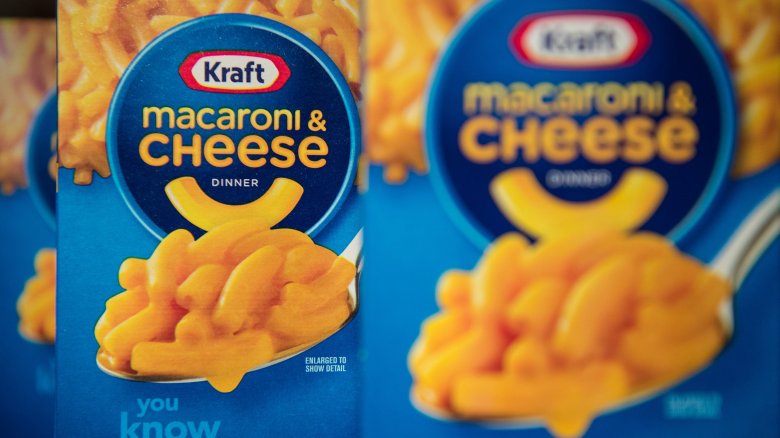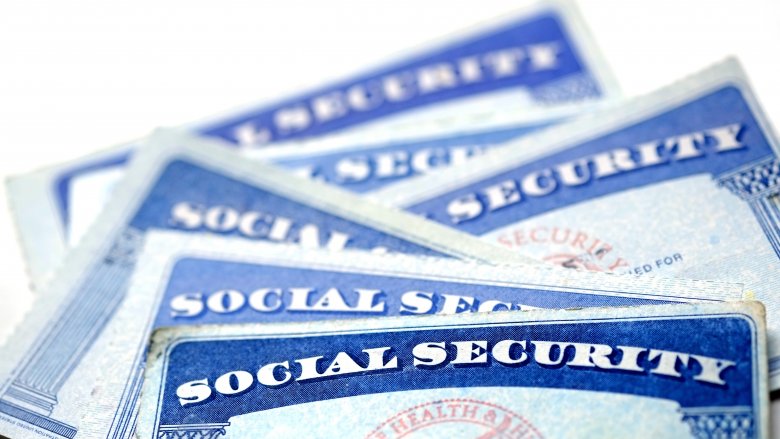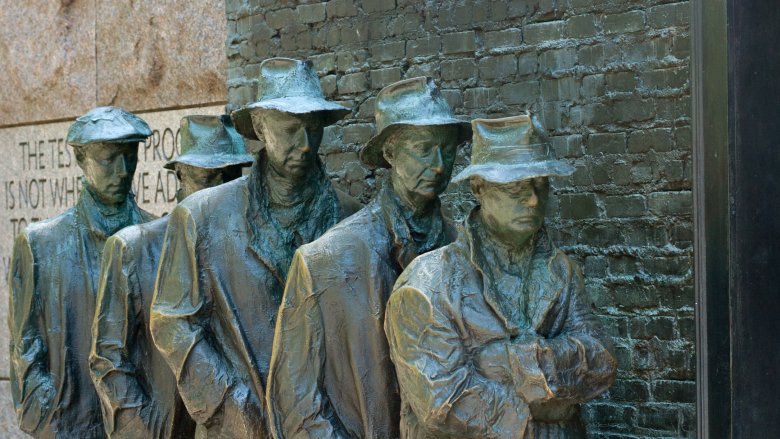
Just in case you’ve ever been tempted to moan because your cell phone doesn’t charge as fast as it used to, here’s a terrifying fact for you: During the Great Depression, no one had cell phones. Right? Eek. And not only that, but during the Great Depression people also didn’t have jobs, and sometimes they didn’t even have electricity or food. So the whole cell phone thing was really a pretty minor problem.
We tend to remember the Great Depression not just as the Dark Times without cell phones but also the Dark Times without Starbucks. And we assume that since people didn’t have these simple methods for remaining constantly connected to every human being they’ve ever shared oxygen with and drinking overpriced luxury coffee beverages, that nothing good could have possibly come out of that era. But that’s not strictly true — in fact, times of great hardship are often times of great innovation because people need to be creative to stay alive when everything else seems to be conspiring against them. So here are some of the good things that happened during the Great Depression.
When all else fails, start a guitar company

When you lose your job, you have a couple options. First, you can play video games and feel sorry for yourself, which is clearly the default. Next, you can spam every employer who has a job listing that looks kind of sort of like something you might be able to do, or at the very least once did in a past life. Third, you can start a business.
During the Great Depression, there were no video games and no Craigslist, so the third option was often the only one people could turn to. Leo Fender had been moving from dead end job to dead end job until the Great Depression, when he found himself unemployed. According to The Vintage News, he somehow managed to borrow $600 so he could turn his passion for radio-tinkering into a full-time business, and eventually started to specialize in building amplifiers for local musicians. He later partnered with Doc Kauffman to build an electric lap steel guitar, and by 1950, the Fender Musical Instruments Corporation was selling the first mass-produced electric guitar, the Fender Telecaster.
You don’t have to be told what happened next. Stars like Jimi Hendrix, Buddy Holly, Stevie Ray Vaughan, and Mark Knopfler all bought Fender guitars, and that’s by no means an exhaustive list. As for Fender himself, he died in 1991, and he never actually learned to play the instrument he spent his whole life building and perfecting.
Bob Smith broke the chain and spontaneously exploded

Chain letters are the only format in which you can threaten someone with death and yet still somehow remain friends. According to Slate, the chain letter scourge has been around since the late 1800s, when a Methodist academy for women hit on the idea that if everyone who got a fundraising letter would donate and then make three copies to give to their friends, who would donate and make three more copies, then the academy would be rich, and never mind that evil would also descend upon all of humanity.
Chain letters eventually morphed into those familiar “put your name on the list and eventually you will move up to the top and become a millionaire” form we know and love today. By 1935, desperate people started thinking to themselves, “If only I could send a fundraising letter, and if every person who got the letter would make three copies…”
Seeing an opportunity to prey upon desperation, chain letter “stores” started to become a thing. A chain letter store basically sold “shares” in the names that appeared at the top of the list on popular chain letters. And the chain letter business eventually became brisk enough that one company had 125 employees.
It was a short lived success, though — it didn’t take long for people to realize they’d been had and for the chain letter brokers to flee with all their ill-gotten gains. And the depression wore on.
Get out of financial insecurity free (for a couple hours)
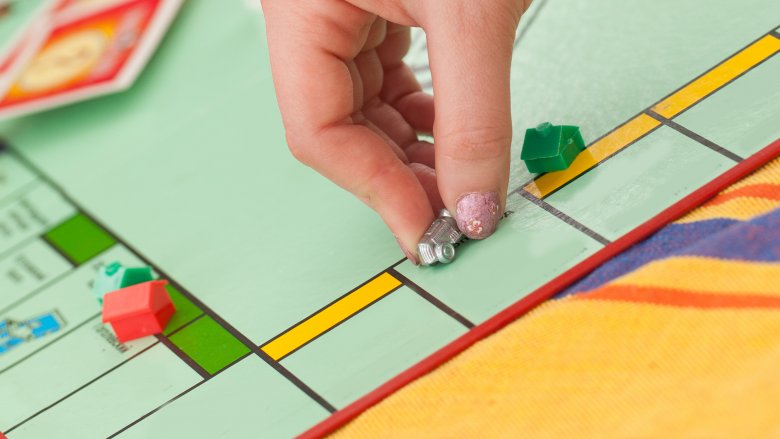
The next time you’re fist fighting your brother over who gets the car game piece, stop for a moment to remember where the game of Monopoly came from. But not for too long because that little creep might grab your game piece.
The original version of Monopoly actually predates the Great Depression. It was patented in 1903 by Lizzy Magie, who called it “Landlord’s Game.” The game was actually a political statement, meant to teach players about the evils of capitalism, so it probably won’t surprise you to hear that not very many people purchased it in its original form. People who played it liked it, though, and the game sort of floated around. You didn’t buy it from a store. Instead, you made copies of it and gave them to your friends, much like a chain letter only without the death threats.
According to The Guardian, in 1932, an unemployed and desperate guy named Charles Darrow decided to redesign Landlord’s Game, and then he sold it to Parker Brothers and became a millionaire. Later, when asked how he’d come up with his phenomenal idea, he just shrugged and said, “It’s a freak. Entirely unexpected and illogical.”
In many ways, Monopoly was a hit because of the times — it was a way for suffering people to escape the unfortunate reality of their lives and pretend to be rich for a couple hours.
Without the Great Depression, we might not have national parks
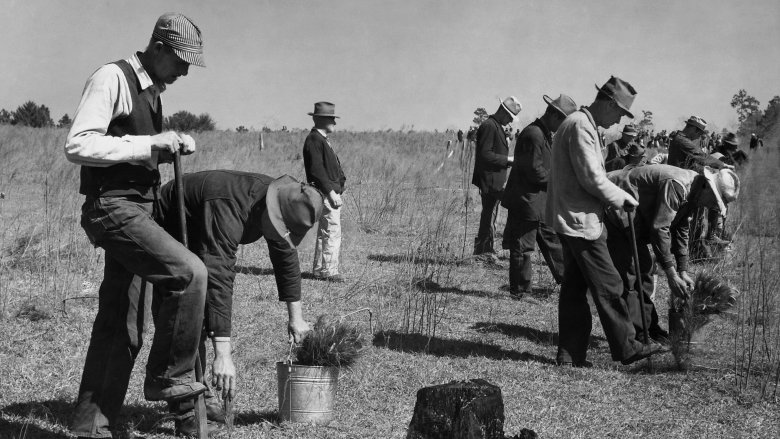
Politicians in the 1930s knew the best way to drag the country out of the depression was to put people back to work, and they devised a whole bunch of programs to make that happen. One of the most successful was the Civilian Conservation Corps (CCC) — a program that put 500,000 young men to work as conservationists, which is pretty groundbreakingly progressive stuff since Americans at the time were also getting really good at polluting the air and water and not giving an actual crap about the state of the environment.
According to History, the CCC only lasted nine years but at one point it employed 5 percent of the male American population. It was because of their efforts that we enjoy such a robust national and state park system today — a lot of the trails, campgrounds, and national park structures you’ve likely visited were originally built by the CCC. And you could also say that the Corps pretty much saved America from becoming purple mountain majesties above the stumpy plain because during its short history it was responsible for over half of America’s reforestation efforts, planting more than 3.5 billion trees to replace those lost to forest fires, agriculture, lumber operations, and erosion.
The Civilian Conservation Corps was defunded in 1942 largely because the money needed to be rerouted to the war effort, but it became the model for similar conservation programs that still operate today.
Spam, spam, spam, spam
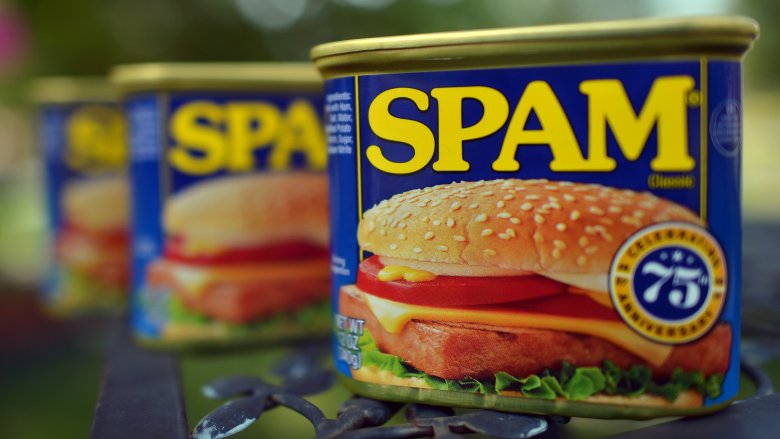
Everyone knows Spam was invented by Vikings and that they filled their longboats with it so they’d be well-fed while plundering British churches and breakfast diners. It’s true. Well, maybe not 100 percent true, but you know, true-ish.
Actually, Time says Spam was invented a couple thousand years after the Vikings as a way to sell unpopular cuts of pork. But even during the Great Depression people weren’t too keen on the idea of canned, unrefrigerated meat, despite the fact that it was a cheap and fast way to get food on the table, which is basically also the only reason why anyone eats ramen. Still, dried noodles are a lot easier to get your mind around than the stuff that appears in a can of Spam when you pop the top, so it’s unsurprising that Spam didn’t really start to become popular until World War II.
Soldiers can’t really drag around an ice chest all the time so they don’t get to eat actual meat. Now, Spam is really more like a facsimile of meat — sure, it’s got pork in it, but it also has loads of salt, some sugar, water, and some weirder things like cornstarch and sodium nitrate. Anyway, because Spam was shelf stable that made it a sort of an obvious staple for World War II soldiers, and over 100 million cans of it were shipped to the Pacific theater. So probably, to them, it tasted delicious. Probably.
Making clean clothes accessible to everyone

In an economic crisis, there are certain things you can do without, like prime rib and a set of fountain aerating wine glasses. But you can’t do without other things, like food, cell phone service, and clean clothes, though there are millions of college students who might argue that last one.
Even the smelliest college student has to eventually drag all that filthy stuff down to the laundromat, even if it’s mostly just because it’s gotten to the point where members of the opposite sex will cross the street so they don’t have to deliberately deprive themselves of oxygen in passing. You can thank the Great Depression for making it possible for college students to have clean clothes because there really are very few college students who would beat their clothes on a rock in the absence of coin-operated laundry machines.
According to Scientific American, the washing machine itself has been around since the late 1800s, when it was basically a hand-crank device that maybe didn’t save that much time and effort. Electric washing machines appeared around the time of the Great Depression, but the economic realities of the era meant not many people could afford to own one. So clever entrepreneurs invested in washing machines and then rented them out for short periods of time, and thus was born the laundromat.
When there was no such thing as ‘the economy’

Today we talk about the economy all the time because the economy is that semi-tangible force that keeps us all employed and makes sure Wall Street bankers can afford prime rib and fountain aerating wine glasses. But the idea of “the economy” didn’t really exist until the Great Depression. That’s because it wasn’t really something that could be seen — it was sort of like the Force, you know, the dollar signs that surround us, penetrate us, and bind all personal consumption expenditures together.
According to NPR, when the Great Depression struck things just sort of went bad, and no one could really pinpoint the reason why. That was pretty scary because it meant everyone was vulnerable. So at some point during the American government’s mad scramble to figure out how to fix things, someone came up with the idea of national income, which was just a way of expressing the value of goods and services America produces. (Today we call it “gross domestic product.”)
People loved this idea because it was a gauge they could use to understand how bad things were and/or how much they were improving. Today, “the economy” is a talking point for politicians and one of the factors we consider at the voting booth. Most importantly, though, it’s a measure of whether or not we can afford to get the new iPhone, so its importance really can’t be overstated.
Then they put mac and cheese in boxes
